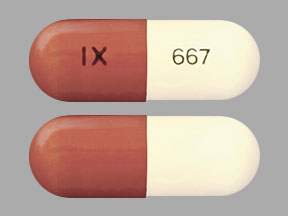
Acitretin Coupons & Savings Card – Discount Prices from $80.19
My prescription
Edit
10MG, Acitretin (30 Capsules)
Select pharmacy

CVS
$80.19
COUPON PRICE
Albertsons
$107.17
COUPON PRICE
Walgreens
$134.40
COUPON PRICE
Walmart
$182.69
COUPON PRICEAcitretin savings card
Show this card to your pharmacist
CVS
$80.19
BIN
ID
PCN
GRP
019876
LH13A99A39
CHIPPO
LHX
Powered by
Related retinoids prescriptions
More prescriptions for psoriasis
Related retinoids prescriptions
More prescriptions for psoriasis
Acitretin dosage forms
Dosage Quantity Price from Per unit 10MG 30 Capsules $80.19 $2.67 17.5MG 30 Capsules $103.85 $3.46 25MG 30 Capsules $92.86 $3.10
| Dosage | Quantity | Price from | Per unit |
|---|---|---|---|
| 10MG | 30 Capsules | $80.19 | $2.67 |
| 17.5MG | 30 Capsules | $103.85 | $3.46 |
| 25MG | 30 Capsules | $92.86 | $3.10 |
Acitretin Warnings
Acitretin Safety Information and Warnings
Acitretin is a medication associated with significant risks and requires careful use. Below are important safety warnings and precautions that must be followed:
Pregnancy Risks: Acitretin can cause severe birth defects. It should not be used by pregnant individuals or those planning to become pregnant within three years of stopping treatment. Effective birth control measures, excluding non-estrogen-containing pills ("minipills"), are necessary one month before, during, and three years after therapy.
Alcohol Interaction: Avoid alcohol consumption during treatment and for two months after discontinuation, as alcohol can prolong the presence of acitretin in the body.
Liver Health: Acitretin may cause liver damage, including hepatitis. Regular liver function tests are recommended. Seek immediate medical attention if you have persistent nausea, vomiting, loss of appetite, yellowing of the skin or eyes, or dark urine.
Blood Donation: Do not donate blood during treatment and for at least three years after stopping acitretin, as it may harm a fetus if transferred to a pregnant recipient.
Cholesterol and Pancreatitis: This medication may increase cholesterol and triglyceride levels, raising the risk of heart disease and pancreatitis. Regular monitoring of cholesterol levels is advised. Contact emergency services if you experience symptoms of a heart attack or stroke.
Skeletal Changes: Long-term use may lead to skeletal abnormalities. Consult your healthcare provider if you experience difficulty with movement.
Vision Changes: Acitretin can affect vision and cause dry eyes. Exercise caution when driving at night, and consult your provider if you have vision issues.
Increased Brain Pressure: This medication can raise intracranial pressure. Avoid using tetracyclines concurrently. Report severe headaches, vision changes, or persistent nausea/vomiting to your healthcare provider immediately.
Capillary Leak Syndrome: Rare but possible, characterized by swelling, weight gain, fever, and low blood pressure. Seek medical attention if these symptoms occur.
Severe Skin Peeling: Rarely, acitretin can cause skin peeling. Discontinue use and contact your healthcare provider if this occurs.
Contraindications:
- Severe liver or kidney disease
- Abnormally high blood lipid values
- Pregnancy
- Concurrent use of methotrexate or tetracycline antibiotics
- Allergy to other retinoids
Always discuss your medical history and any concerns with your healthcare provider before starting acitretin. In case of overdose, seek immediate emergency medical help.
Acitretin Side Effects
Common side effects:
- Chapped lips
- Increased cholesterol levels
- Skin issues like peeling or dryness
- Hair loss
- Runny nose
- Itching
- Nail changes
- Dry eyes or mouth
- Nosebleeds
- Joint pain
- Shivering
Less common but important to monitor:
- Tiredness
- Trouble sleeping
- Mood changes
- Appetite alterations
- Headaches
- Flushing
- Vision changes
- Nausea
- Diarrhea
- Bleeding gums
- Taste loss
Serious side effects:
- Allergic reactions (hives, swelling, difficulty breathing)
- Capillary leak syndrome (sudden weight gain, fever)
- High brain pressure (severe headaches, vision changes)
- Symptoms of depression or thoughts of self-harm
- Signs of a heart attack
- Stroke
- Liver issues
- Dangerously high blood sugar levels
Acitretin Interactions
Interactions with high risk of serious adverse effects and should be avoided:
- Tetracycline Antibiotics (e.g., Chlortetracycline, Demeclocycline, Doxycycline, etc.)
Interactions with moderate risk that may require dose adjustment, closer monitoring, or timing changes:
- Pexidartinib
Interactions with low risk that usually do not require a change in therapy:
- Levonorgestrel
- Methotrexate
- St. John's Wort
- Vitamin A
